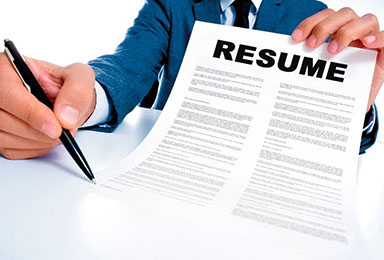There are many proven ways to stay in the writing business while making a decent living. People are often found rushing to apply for jobs that relate to creating both academic and non-academic content. This is because these jobs are often easy to learn and with time are likely to bring good returns as people are in need of help with their documents more times than often. Especially popular is the demand placed on people who go into resume writing jobs.
Creating resumes is a task that requires one to be very cautious. It’s not a job where ‘anything goes’ because you are trying to project a person as the suitable candidate for one job or the other. A lot of people often get confused when they need to create their resume. It might be that this is their first time, and they have no inkling on how to start a resume or what information to include. Or they might know these things and lack the creative mind needed to project their skills properly and make them appealing to employers.
In this article, we will try to understand the things that are involved in writing a resume and what a resume freelance writer can do to become a prodigy in his niche.
The art of resume drafting: Becoming professional
We all are mostly familiar with the details that go into creating the perfect document bound to elicit attention and interest from targeted employers. A resume is often like a person’s pixel photograph; the information regarding one’s education, work history, capabilities, and certifications all help the potential employers to create a mental image of what this person might be like. Most importantly, it helps them to deduce how valuable the person described would be to their organization.
This is why a resume writing job can sometimes be a bit harder to find, as opposed to people who engage in less demanding jobs like editing, proofreading, and writing. In order to be able to navigate through jobs like this successfully, you need to know the basics.
Firstly, what is a resume? Many people often confuse this document with closely related ones like curriculum vitae and cover letter. The simplest way to define a resume is to see it as a compressed version of a CV. Even with that, there are a few differences. Resumes have been known to include short introductory paragraphs describing little detail about the person and how he/she would be an asset to a particular organization.
Next, how long should a resume be? As someone aspiring to be professional in this job, it’s something you should always consider. Normally, this document should not be more than two pages long, sometimes one. Why? Employers who deal with a large pool of interviewees barely have time to read CVs. Submitting a resume is often the person’s best shot at getting seen.
Keeping these two facts in mind, you discover that your job description has been roughly cut out for you – you are to make a person look appealing for a specific job in less than two pages. This can be hard. But it’s doable. Let’s explore the tips that will help one to become a certified professional resume writer:
- Know your client
No, not on an extremely personal level. Before you create any employment-related document for anyone, you have to know the person you are doing it for. You need to know their history, experience, where they have worked or lived and their skills. Most importantly, you need to know how they like to be projected – would they want employers to see them as independent, assertive, patient, gentle or choleric? You do not want to create a resume that projects a gentle personality when the person is in fact, a dominant personality.
- Know the employers
This is especially helpful for drafting a business professional resume. Your client would definitely have a list of potential employers that he/she envisions working for. As the writer responsible for creating a quality document for them, you need to do a brief background check on the employers, the job vacancy and most importantly, what the employer is looking for.
The best place to start is usually the job vacancy advert. Many employers today often state succinctly the qualities they are looking for in potential employees. You need to pay attention to these things, because they would enable you to carry out the next tip.
- Drafting the resume
Now that you have enough information at hand, you begin work on the resume. Starting from the personal details (name, address, contact details) you carefully weave your way through the short introduction (if needed), education and work details, skills and certifications and hobbies.
- Be wary of making mistakes. It makes the whole document a joke.
- Do not rush. Take your time to do a good job.
- Confirm dates and timelines with the client to avoid giving false information.
- Train yourself to be accurate, yet fast. This will come with practice.
Also, draft the resume such that it fits the description the employer is looking for. Polish those selling points of your client that are relevant to the job. It will help them get attention faster.
- Repeat
You do not become a professional from drafting just one! Get your hands on as many as you can. Gather the experience, deal with the peculiarities of each resume. Be patient and give yourself time. You will become an expert soon enough.
Conclusion
Everything that is done well takes time to accomplish. Experts are never made in a day. Keep pushing; write as many resumes as you can. You might not feel like you are making progress now, but it’s all worth the hustle in the end.






